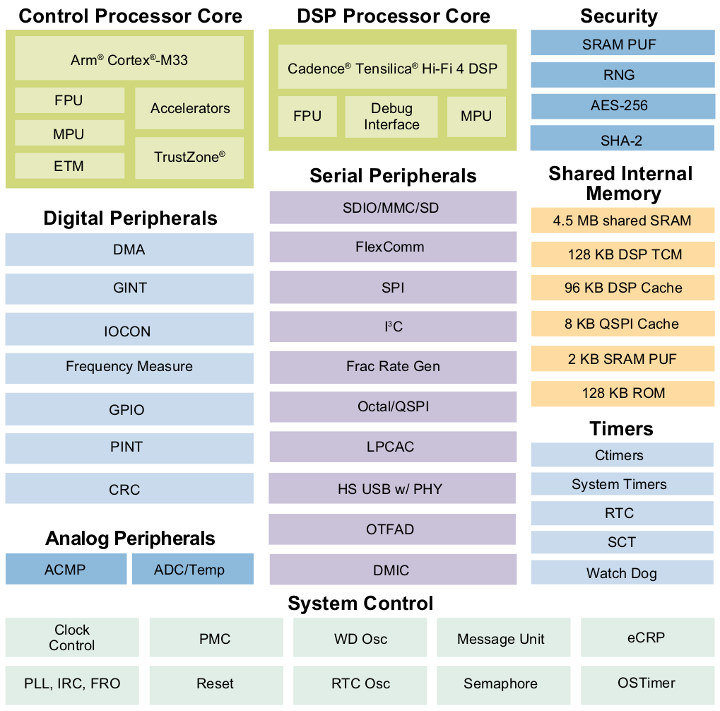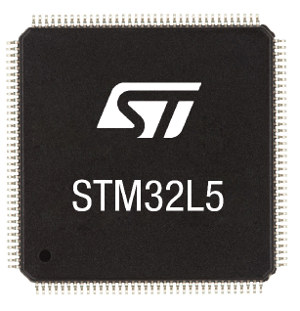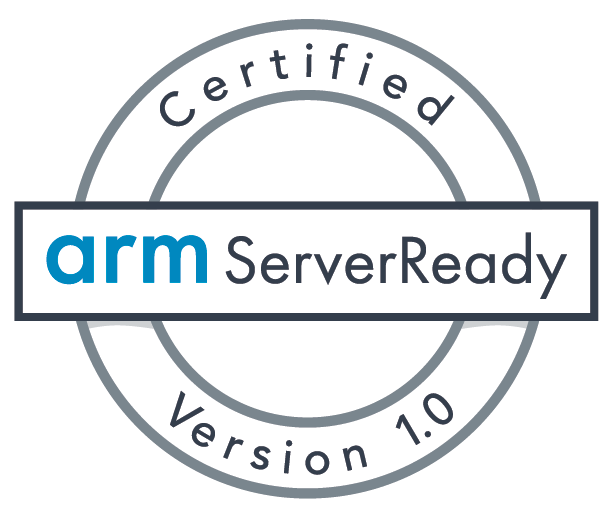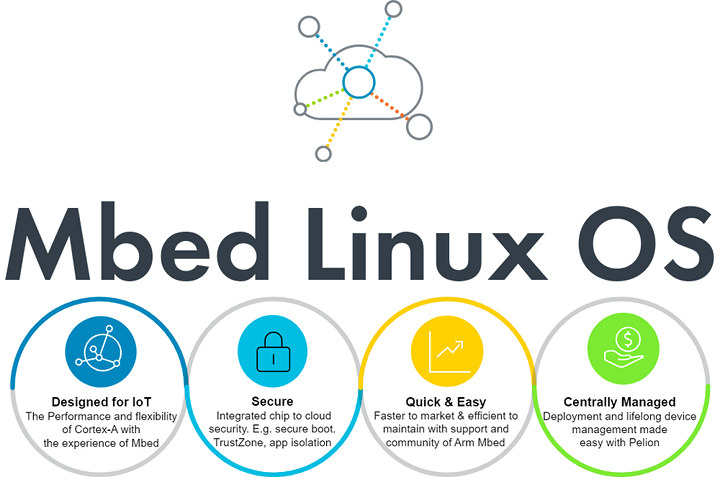A little over a year ago, NXP introduces their first crossover processor that blurs the line between real-time capabilities of microcontrollers and higher performance of application processors with NXP i.MX RT1050 processor equipped with a Cortex-M7 core clocked at up to 700 MHz. The company has now announced another model with lower power consumption. NXP i.MX RT600 series comes with a Cortex M33 core clocked at up to 300MHz, a Cadence Tensillica HiFi 4 audio DSP, and up to 4.5MB shared SRAM. Main features of NXP i.MX RT685 crossover processor: CPU Core – Arm Cortex-M33 up to 300 MHz DSP – Tensilica Hi-Fi 4 up to 600 MHz Memory Up to 4.5 MB on-chip RAM 128KB DSP TCM, 128 KB DSP Cache Storage 96KB ROM on-chip 2x SDIO with 1x supporting eMMC5.0 w/ HS400 1x Octal/Quad SPI up to 100MB/s Peripherals 2x DMA Engines with 35 channels each 1x USB […]
STMicro STM32L5 Cortex-M33 ARMv8-M MCU Family Targets Secure IoT Applications
STMicro STM32 microcontrollers have so far been based on Arm Cortex-M0/M0+, M3, M4, or M7 cores, although we’ve also seen a yet-to-be formally announced Cortex A7 variant shows up in Linux 4.17 with STM32MP157C. The company has very recently announced a new family, namely the STM32L5 series, powered by an Arm Cortex-M33 ARMv8-M 32-/64-bit TrustZone enabled core clocked at up to 110 MHz, and equipped with on-chip SMPS for easy low power efficiency, USB FS device, and USB type-C PD Controller. Two sub-families are part of the STM32L5 series: STM32L552 with 256 to 512 KB of Flash memory and from 48 to 144-pin packages. STM32L562 with 512 KB of Flash memory, and an additional encryption accelerator engine (AES, PKA, and OTFDEC). Besides the extra HW crypto block both share the same key specifications: MCU Core – Arm Cortex-M33 ARMv8-M core clocked at up to 110 MHz (+20% versus Cortex-M4) with […]
Arm ServerReady is a Compliance Program for Arm-based Servers
The Server Base System Architecture (SBSA) specification was unveiled in 2014 in order to standardize all Arm based servers and let them all run the same operating system images. However so far, manufacturers would just test specification requirements by themselves without having their claims fully tested and certificated. That’s why Arm has just unveiled the Arm ServerReady certification program for Arm based servers which relies on the Architecture Compliance Suite (ACS) for SBSA and SBBR (Server Base Boot Requirements) verification. Basically the servers must be able to boot standard operating systems and run the ACS. The servers that pass the ACS are then granted the Arm ServerReady certificate. The current Arm ServerReady version 1.0 certification utilizes ACS version 1.6 for testing SBSA version 3.1 and SBBR version 1.0 compliance. Ampere, HXT, Marvell, Qualcomm, as well as ODMs such as Femrice, Gigabyte and UIT have already received Arm ServerReady version 1.0 […]
Arm Mbed Gets a Linux OS for Cortex-A Processors
Arm Mbed is known as a free, open source platform and operating system that makes it easier to design IoT products based on Cortex-M micro-controllers, but the company figured out it might be a good idea to make something similar for IoT devices based on Arm Cortex-A processor and that’s exactly what Mbed Linux OS is made for. Embedded & IoT devices normally need to be supported for many years, often optimized for cost and battery life, and make sure security patchsets are applying to your products. Companies often managed to do all those themselves but it’s not the most cost-effective solution, so instead Arm decided to leverage Linux and offer Mbed Linux OS optimized for IoT devices yo their customers. The solution comes with built-in security, device management (e.g. OTA firmware upgrades) via the Pelion IoT Platform, common development tools for faster time to market, and so on. Some […]






